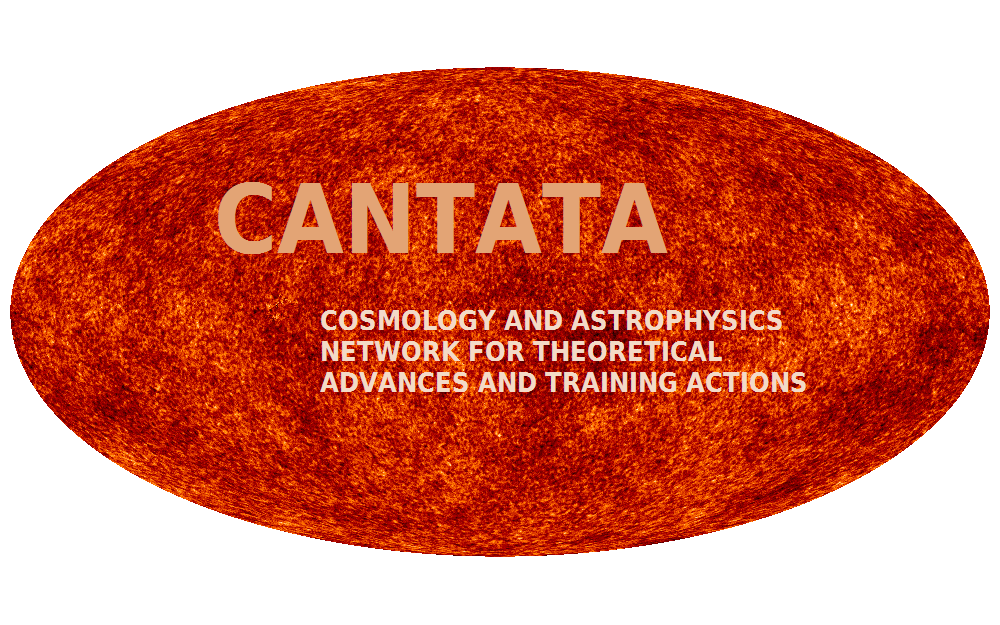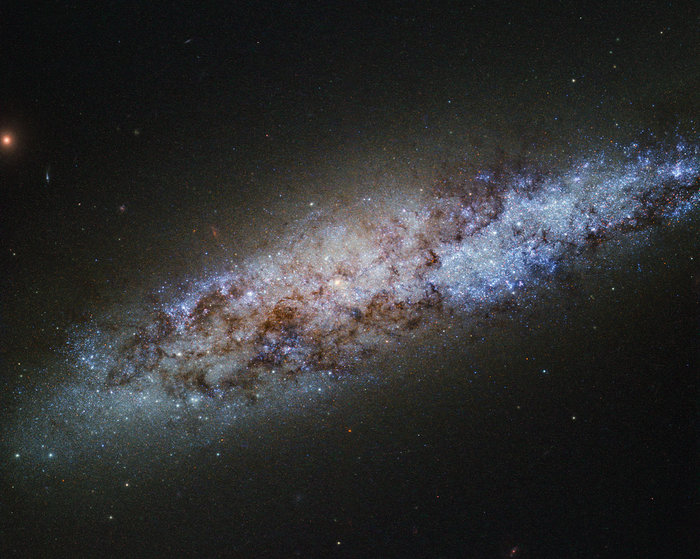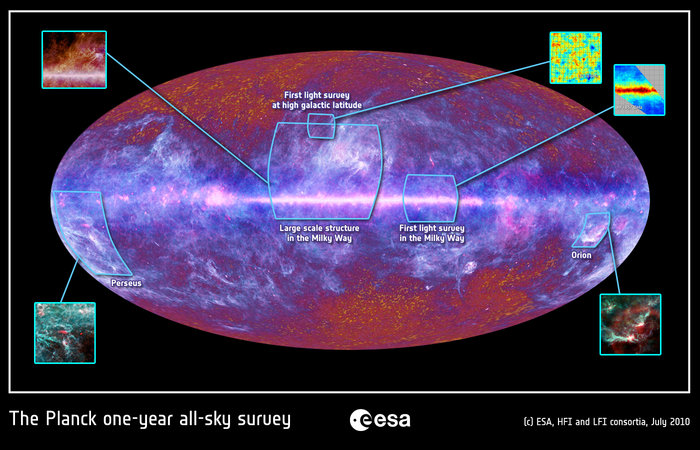
|
|||
| View Edit Attributes History Attach Print | |||
|
|
Main / HomePage
Page modified on May 10, 2016, at 12:42 PM CA-15117COST Action
Cosmology and Astrophysics Network forTheoretical Advances and Training Actions

The main goal is to construct an effective theory of gravity capable of encompassing both the phenomenology related to the lack of a quantum field theory of gravity, and the phenomenology related to the various astrophysical scales (e.g self-gravitating systems, galaxies, large scale structure) that cannot be explained within the framework of GR without including dark matter and dark energy. Within the proposed program, we will enhance already existing collaborations, and we will start a European pilot project CANTATA with the goal of developing a synergy between our expertise and competences. Capital points will be
 The Scale of the Universe - Courtesy of ESA
 The microwave sky as seen by Planck - Courtesy of ESA
A local copy of PmWiki's documentation has been installed along with the software, and is available via the documentation index. To continue setting up PmWiki, see initial setup tasks. The basic editing page describes how to create pages in PmWiki. You can practice editing in the wiki sandbox. More information about PmWiki is available from http://www.pmwiki.org. |
||
| Edit - History - Print - Recent Changes - Search | |||

